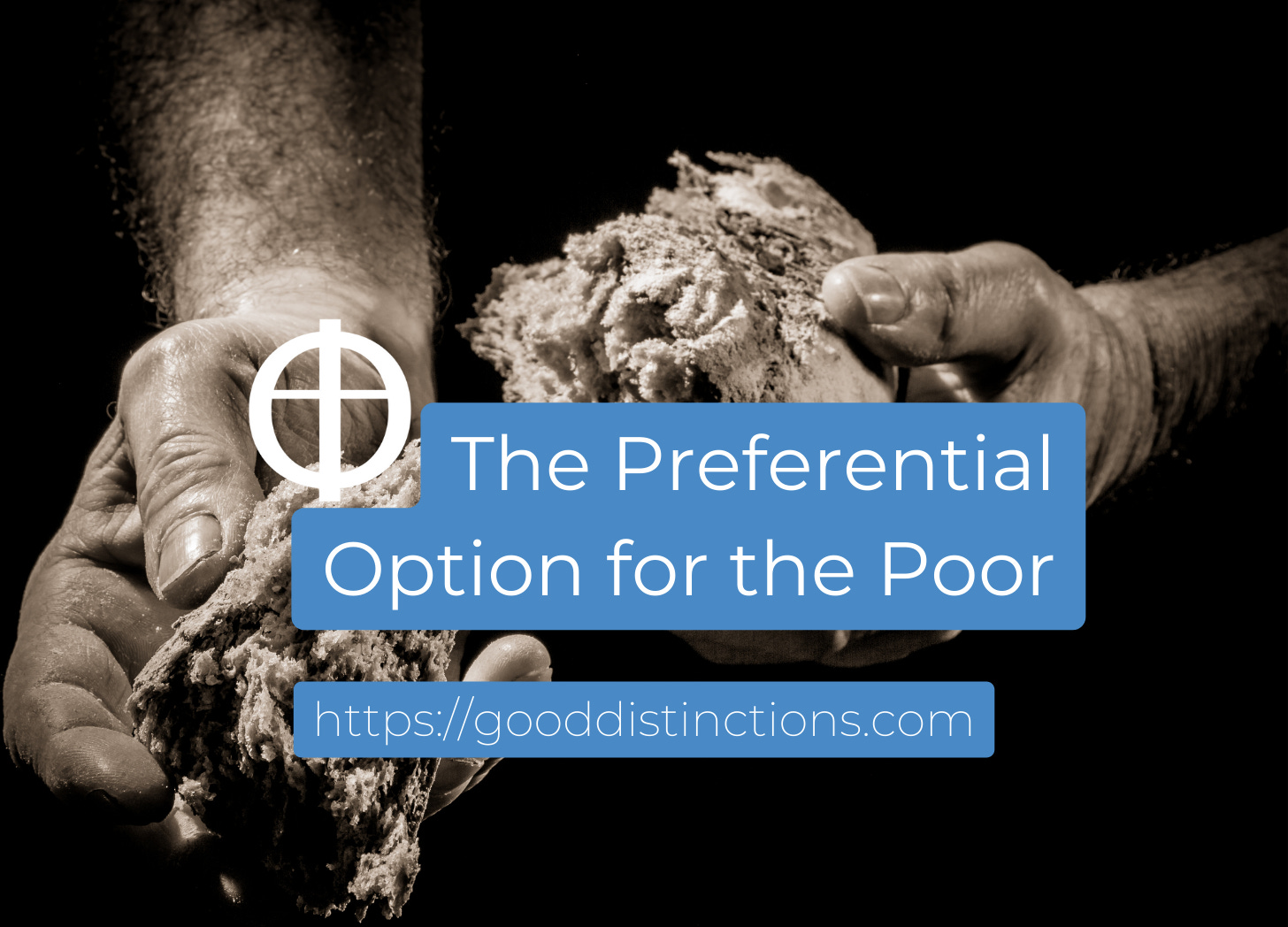The Preferential Option for the Poor
(September 27 - St. Vincent de Paul)
In nations ravaged by communism, there is an ever-widening gap between the super-rich and the ultra-poor. In areas of unfettered capitalism and many types of socialism, there is likewise a disappearing middle class. In other words, societies that do not care for the poor and vulnerable tend to lead to the poor getting poorer and the rich getting richer.
The Catholic Church has always upheld the call of Christ Himself to the corporal works of mercy. The needs of the poor and vulnerable must come before our own, assuming that our basic responsibilities (bills, shelter, clothing, food, and water for our families) are met. This is called the preferential option for the poor. Do I feed the hungry, give drink to the thirsty, welcome the stranger, clothe the naked, care for the ill, visit the imprisoned, and bury the dead? Notice I said “Do I?” It is not enough for our parish to do these things; in one way or another, we will be individually judged by God on whether we personally contributed to these efforts in service of Christ, according to the circumstances of our own lives.
Of course, God does not call us to treat the Corporal Works of Mercy like a checklist. But I would say there is a balance needed between seeking out opportunities to serve Christ in those in need and being perceptive of opportunities as they arise. For example, if a loved one dies, I need to ensure that they are buried properly, in line with the dictates of the Church. This fulfills the call to bury the dead without actually having to pick up a shovel to physically bury the dead.
However, when it comes to the poor and vulnerable, we are all called to serve. For lay people, this could start with how we view the world. If we are driving down the street and see a homeless person, do we look away in disgust or do we see this man or woman with the eyes of God? When we are a position to provide food or water for the poor and needy, do we take a few moments to do so, or are we more concerned with getting where we need to go?
Oftentimes, the effort needed to make an impact is less than ten seconds. For example, just the other day, I met a man on the street in downtown Phoenix asking outside of a restaurant if I could get him a soda or something to eat. I usually am opposed to just handing someone money, but I discerned in the moment that it was the right thing to do, as I had to get somewhere. I gave him some cash and asked him his name. I introduced myself as well and shook his hand. His face lit up when he heard his name.
The preferential option for the power extends to all the voiceless, including the unborn. I wanted to bring this up to make a distinction between “voiceless” and “powerless.” Notice, I said the former, not the latter. The Marxists have hijacked the “preferential option for the poor” in liberation theology to mean the lifting up those who are powerless. Of course, we read in the Psalms: “the powerless and the widow He sustains.” But there is a difference between sustaining the powerless on the one hand and fighting a class struggle of power on the other hand. Class struggles and identity politics are self-defeating and cause more problems than they solve.
We must do what we can to share of our own bounty to provide for the necessities of life for those without. We must also share the Gospel with these men and women as best we are able, whatever their circumstances may be. We are called to engage in the political order to ensure that justice is done and that the marginalized are not forgotten as we make decisions. But, before any of that, as a general approach, we must not forget the humanity of the man or woman in need. Use his or her name. Smile. Look him or her in the eye. Let them feel the warmth of Christ by your presence.
Do not look down on the poor man; instead, recognize the solidarity that naturally exists between you and him. Are we not all created in God’s image? Are we not all redeemed by the same Blood of Jesus Christ on the Cross? Let’s act like it.



Dear Mr. Wright-The thrust of your article was spot on, as usual. However, in your intro you happened to hit not one, but two of my pet peeves, "unfettered capitalism" and "disappearing middle class". I'm not sure if those are tropes, cliches, platitudes, or just overused phrases. Where is an area of unfettered capitalism? Historically, maybe you know of some areas that met this description, but there is no modern economy/society that is remotely close to functioning in a state of unfettered capitalism. You can slice and dice income statistics over cherry picked time periods and make a case for a disappearing middle class, but you need to ask the next question: where have those people gone? The answer (at least in the US, I haven't looked at other countries) is that they have predominately "disappeared" to the upper class. Keep up the great work!